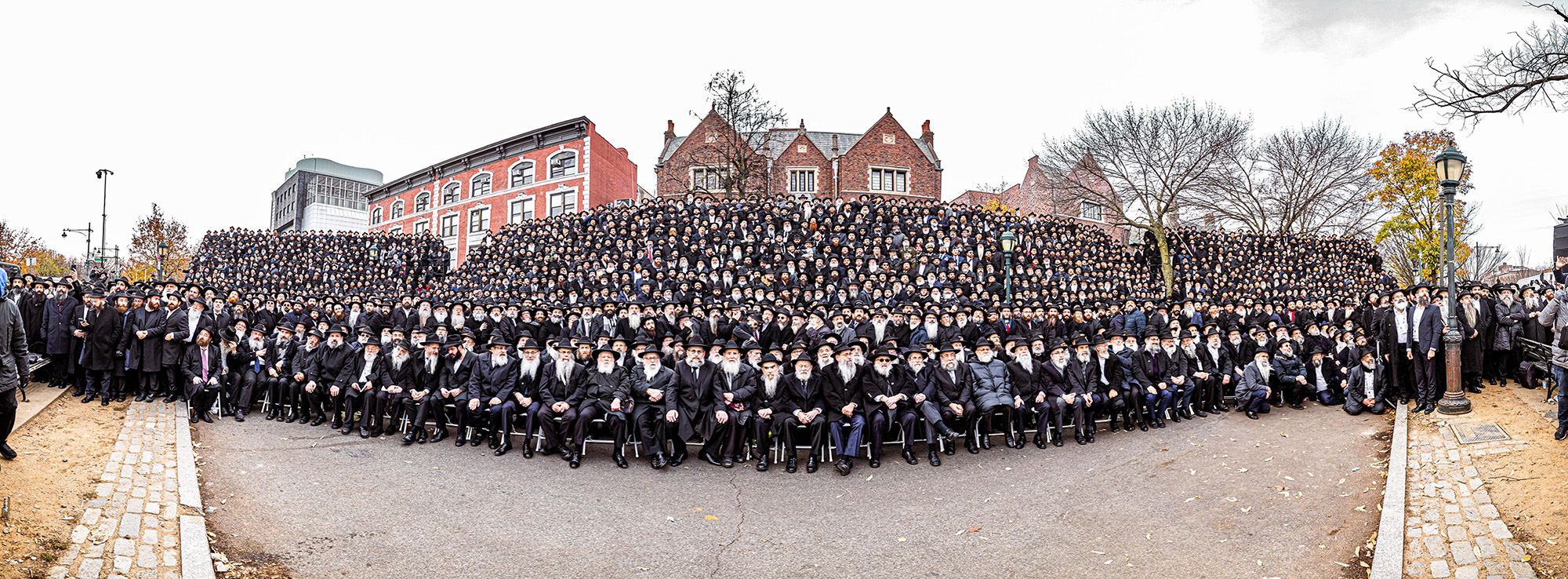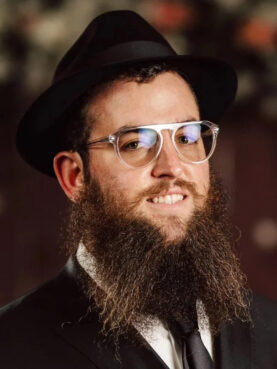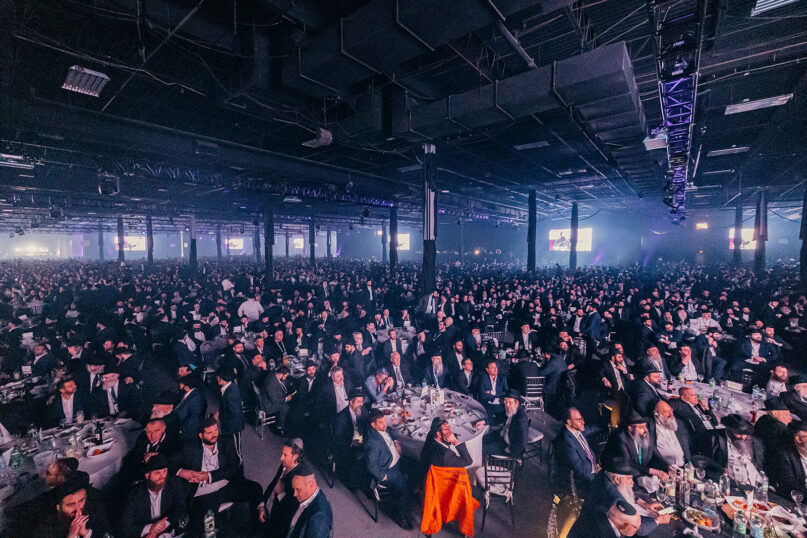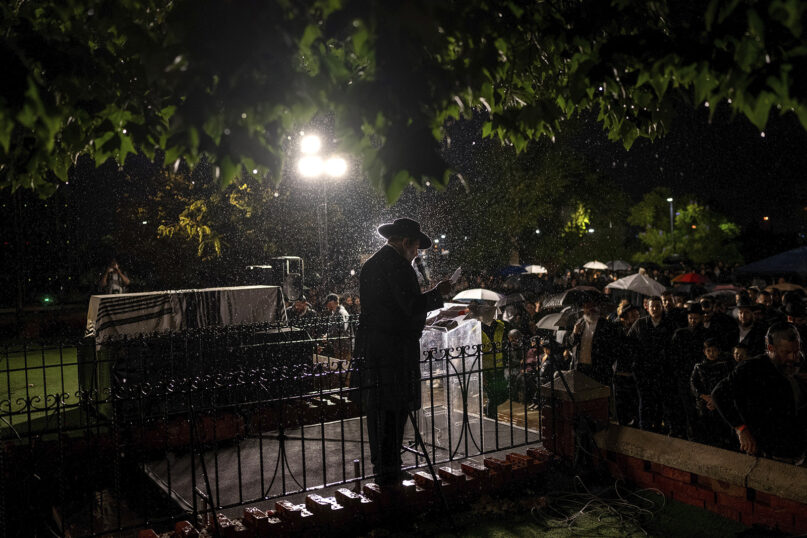
(RNS) — Even as thousands of rabbis affiliated with the Chabad-Lubavitch Hasidic sect crowded into a group photograph at their annual conference in Brooklyn’s Crown Heights neighborhood, the absence of one of their colleagues was palpable.
Rabbi Zvi Kogan, an emissary of the Chabad-Lubavitch movement, was murdered last week in an apparent antisemitic attack in the United Arab Emirates. He was laid to rest last Monday (Nov. 25) in Israel.
Three Uzbek nationals, allegedly linked to an Iranian-backed terror cell, were arrested shortly after disembarking from a plane in Turkey and deported back to the UAE as the primary suspects in Kogan’s murder. If convicted they could face the death penalty.
Iran, which has denied any involvement in the killing, has long been accused of targeting prominent Jewish and Israeli figures abroad, including the 1994 bombing of the AMIA Jewish center in Buenos Aires and a 2022 plot to target Israeli tourists in Istanbul, which both Israeli and Turkish officials pinned on Iran.
The attack was grieved by Jews around the world, but most of all by the rabbis affiliated with the Chabad Hasidic sect, which has made a name for itself sending its emissaries — known in Hebrew as shliachs or shluchim — wherever Jews may be and providing them with the necessities of Jewish life.

Rabbi Zvi Kogan. (Photo courtesy Chabad.org)
Thousands of rabbis affiliated with the movement gathered last weekend in Crown Heights, its spiritual center, for their annual conference, known as the Kinus, a tradition begun in 1983 by the movement’s late leader, Rabbi Menachem Mendel Schneerson, remembered by most simply as “the Rebbe.”
But the tone was defiant this weekend, stressing that the attack would not sway them from their mission, in the UAE or elsewhere in the world.
“This Kinus comes at a time of acute pain and immense loss. Just last week, we tragically lost one of our brothers, Rabbi Zvi Kogan, a devoted shliach in Dubai. Kogan dedicated his life to expanding Jewish life in the Gulf, and his shocking murder has left a deep void. It’s at moments like these that we need to come together, strengthen each other, and recommit to our mission,” Rabbi Mendy Kotlarsky said in his address opening the conference Thursday (Nov. 28).
“This past week, the world witnessed the life of a shliach through the tragic lens of Rabbi Kogan’s murder. Leaders across communities have reached out, expressing a shared sense of loss. It’s now our responsibility to channel that pain into action — recommitting ourselves to the mission of bringing light, mitzvot and connection to every corner of the world,” he continued.
The conference’s Sunday night gala began with a video tribute to Kogan. “You would see Zvi’s special care for every single shliach, for every single person,” said Levi Duchman, Chabad’s head rabbi in the UAE, whom Kogan had come to assist. Since the signing of the Abraham Accords in 2020, which normalized relations between Israel and UAE, Israelis and Jews from around the world have been flocking to the Gulf Arab state for both tourism and business, with many setting up there permanently.
Synagogues, Jewish day schools, kosher restaurants and markets — one of which Kogan managed — have been established for the growing Jewish community. Chabad’s presence had grown to seven rabbinic families — including the Kogans.

Rabbis participate in a moment of silence at the Gala Banquet during the Conference of Chabad-Lubavitch Emissaries at the New Jersey Convention and Exposition Center in Edison, N.J., Sunday, Dec. 1, 2024. (Photo © Shmulie Grossbaum/Chabad.org)
After a century of decline of ancient Jewish communities in the Arab world, from Morocco to Yemen and Iraq, the UAE’s population had been hailed as a historic development.
Kogan’s murder is not the first time Chabad’s emissaries have been targeted over geopolitical issues. In 2013, a Chabad rabbi in Derbent, the capital of Russia’s Muslim-majority Dagestan region, was gunned down in his home.
In 2008 a Pakistani terror group linked to Al-Qaeda launched an assault on sites around Mumbai, India, including the city’s Chabad house. The assailants held hostage and ultimately murdered Rabbi Gavriel Holtzberg and his wife. The Holtzbergs’ niece, Rivky, was married to Kogan.
The violence has not deterred Chabad. “This is what the Rebbe injected in us,” said Rabbi Israel Kozlovsky, who replaced the Holtzbergs in Mumbai a few years after the 2008 attack. “In a time of tragedy, we will not go to the obvious, which is to close down or to slow down, to contemplate on the sorrows, but we will bounce back and will return, not only to full swing, but also to much more than what we were before.”
Rabbi Motti Seligson, a spokesman for Chabad-Lubavitch, told RNS that he is getting questions about Chabad abandoning the Gulf states. “That’s not how Chabad responds to these things,” he said. “When there’s adversity and there’s darkness, the response is to bring an immense amount of light to bear and build back stronger. That is what we are doing in the UAE.”
It’s a point Duchman emphasized in the tribute to Kogan, which opened the gala Sunday night. “One thing I knew as the Rebbe’s shliach, when I received the devastating news that one of our shluchim was lost and was murdered in cold blood, was that our response could only be one way. To grow even more, to bring more shluchim, to bring more yiddishkeit (Jewishness) to the UAE,” Duchman said.

A rabbi delivers a eulogy next to the coffin containing the remains of Israeli-Moldovan rabbi Zvi Kogan in Kfar Chabad, Israel, Nov. 25, 2024. Kogan, 28, an ultra-Orthodox rabbi, was killed last week in Dubai, where he ran a kosher grocery store. (AP Photo/Ohad Zwigenberg)
Seligson stressed that while the attack in the UAE was a shock, it’s not the only difficulty the movement’s rabbis have faced this year.
“It’s been a year of tragedies, with war in Israel, or for other rabbis in Ukraine who have witnessed tragedy in their communities,” Seligson said. In September, the son of Rabbi Reuven Moshe Azman, a chabad emissary and chief rabbi of Ukraine, was killed on the front lines in the war with Russia.
But Chabad’s resilience doesn’t mean the wider movement is unaffected. Attacks on rabbis inevitably come with new security directives, which can be disheartening for a movement that prides itself on its openness and welcoming attitude — and one funded by donations.
“It’s a double-edged sword. On one side we are increasing our activities, but on the other we have to be more alert,” said Kozlovsky. “To make a real change in security that is not just cosmetic, you have to invest. We are an organization that, like any other organization, runs on donations, so we always have to judge what is more important: teaching the (Hebrew) alphabet to this little child who never got a Jewish education or to install another camera.”
Nonetheless, after this weekend’s conference, the rabbis were resolved.
“The Talmud says that the Jews are considered like olives, an olive is a regular fruit, but only when it is crushed do its best aspects come out,” said Kozlovsky.
